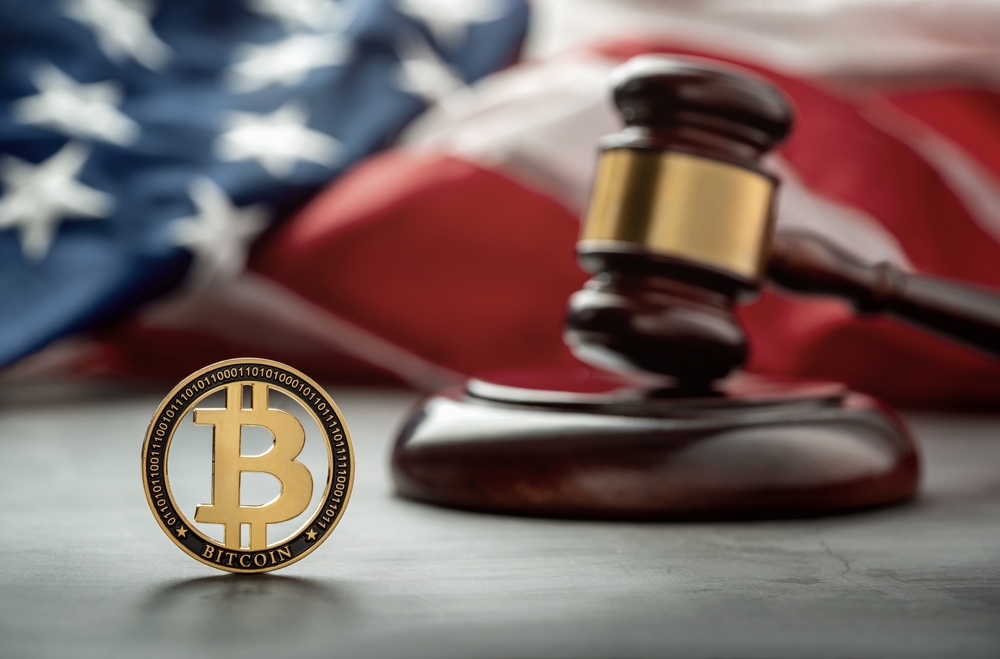Republican Senator presents Bitcoin bill despite the split in Congress and Presidential races.
On July 31, Senator Cynthia Lummis (R-WY) tabled a bill aiming to develop national Bitcoin reserves amid increased political interest in the sector. Christened the BITCOIN Act of 2024, this bill seeks to bolster ‘the U.S. dollar’s position in the international financial system.’
Lummis hinted at the regulation on July 27 during the yearly Bitcoin conference in Nashville, Tennessee. Nikhil Bhatia, a finance professor at the USC Marshall School of Business and founder of the Bitcoin layer research company and podcast, noted that the legislation might only come up for a vote after the conclusion of the United States presidential election.
In an interview, Bhatia said this might happen mainly when a president is likely to reject anything that comes his way, backed by the right.
Bill to Facilitate Bitcoin Reserve Creation
If ratified, the Bitcoin Act 2024 would create a strategic Bitcoin reserve to strengthen the United States’ financial position internationally. The bill notes that similar to how gold reserves have historically been the foundation of national financial security, Bitcoin represents a digital-age asset. Its adoption can improve the nation’s financial security and leadership in the current global economy.
The Bitcoin Act also promotes transparency concerning how the United States Treasury Department controls the 1 million in Bitcoin it would get as part of the act. However, the legislature encounters obstacles in a profoundly split Congress amid a combative Presidential race.
Bitcoin is a partisan matter that came to the forefront of this year’s Presidential election season. In this case, ex-President Donald Trump backed cryptocurrency during an event at the Mar-a-Lago resort in May.
Democrats Opposing Bitcoin
Democrats, including Brad Sherman (D-CA) and Elizabeth Warren (D-MA), have opposed Bitcoin due to the belief that it is a tool utilized by criminal actors. They also believe that it might impact the supremacy of the United States dollar.
In the meantime, Vice President Kamal Harris’s campaign is allegedly reaching out to the sector. It is trying to learn more concerning the asset class amid mounting pressure after Trump’s approval at the same conference on July 27.
Such efforts draw to potential realignment in Harris camp to win over the crypto vote. However, the Vice President has yet to state her stance on digital assets and whether she will ditch the regulation by enforcement associated with the incumbent leader.
Bhatia claimed that Bitcoin is becoming politicized. She noted that politicization has changed rapidly every year or two, indicating that it is not political. Additionally, she said that based on Senator Lummis’s view, Bitcoin is a neutral technology similar to the Internet.
Bhatia noted that most of the support for Bitcoin originates from the right. However, progressive thinkers have also advocated for Bitcoin.
Bhatia noted that financial empowerment is quite a left-of-center perception. A person might believe this political perspective would be left-of-center, utterly present in Bitcoin.
Bhatia noted that Senator Lummus wants professionals and others involved in the discussion to establish how the Bitcoin ACT would function following ratification. The bill does not make Bitcoin legal tender and lacks any relationship with people utilizing or transacting in Bitcoin.
Bhatia added that the bill is a thrilling idea. Hence, rather than saying he backs the bill, he supports exploring the digital community as a strategic resource and asset for the US.
The proposal for the BITCOIN Bill of 2024 coincides with the revelation by blockchain analyst firm Arkham Intelligence that the US moved $2 billion worth of BTC associated with the Silk Road. The news of the transfer to an unknown address plunged the market into chaos.
The transfer timing after Trump pledged to hodl Bitcoin as a strategic stockpile made tradfreak outkout. CoinGecko data shows that the BTC tumbled below $67,000 after briefly changing hands above $70,000.


